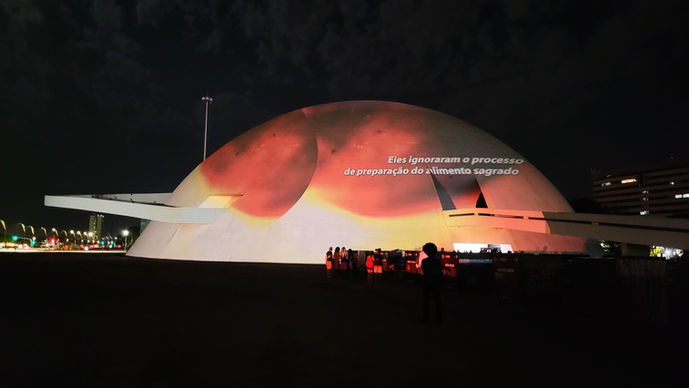Reticulation
Video Art- A.I; Video Mapping 2024
The work engages with archival images from the early days of microscopic cinematography in the 20th century to question the construction of “life” as an epistemological entity. To this end, it revisits Foucault’s notion of life as a result of the establishment of biology as a scientific discipline in the 19th century. By appropriating the language of scientific documentary, it observes the behavior of cells and develops an audiovisual narrative that traces technological advances in the creation and capture of scientific images.
In parallel, it presents indigenous maize as an alternative vision of life and knowledge production. In this dialogue, it questions which voices are recognized and authorized to define science, life, and art.

The work reappropriates archival footage alongside images generated through AI and indigenous cosmotécnicas. Using AI-based expansion techniques, it creates an imagetic cultivation of artificial cellular tissues. In doing so, it contrasts the duality between microscopic images of cancerous cells and macroscopic photographs of Kaiowá maize grains and the genetically modified maize monocultures that surround indigenous villages.
By challenging colonial perspectives on knowledge production, the work opens up alternative sensibilities, symbolically engaging with the states of becoming that define life and reproduction. It also highlights the consequences of neglecting traditional knowledge, recalling the malnutrition epidemic caused by the global export of maize without the technical procedures necessary for its preparation. Using repetition as metaphor, it intertwines maize grains, genetically modified organisms, metastasis, spirits, and synthesized images in audiovisual layers.
Video Mapping - The National Museum of the Republic (Brasilia, Brazil)








